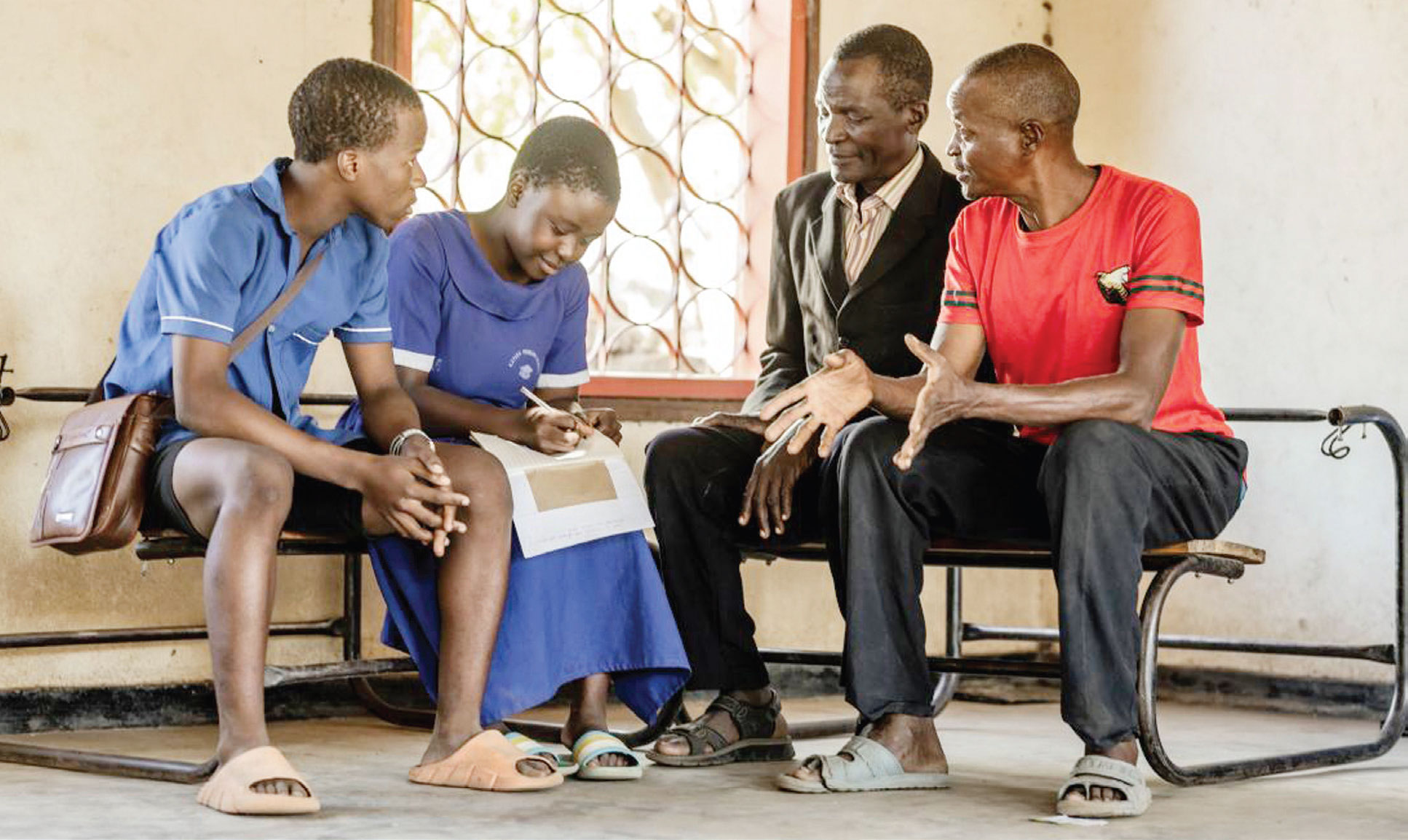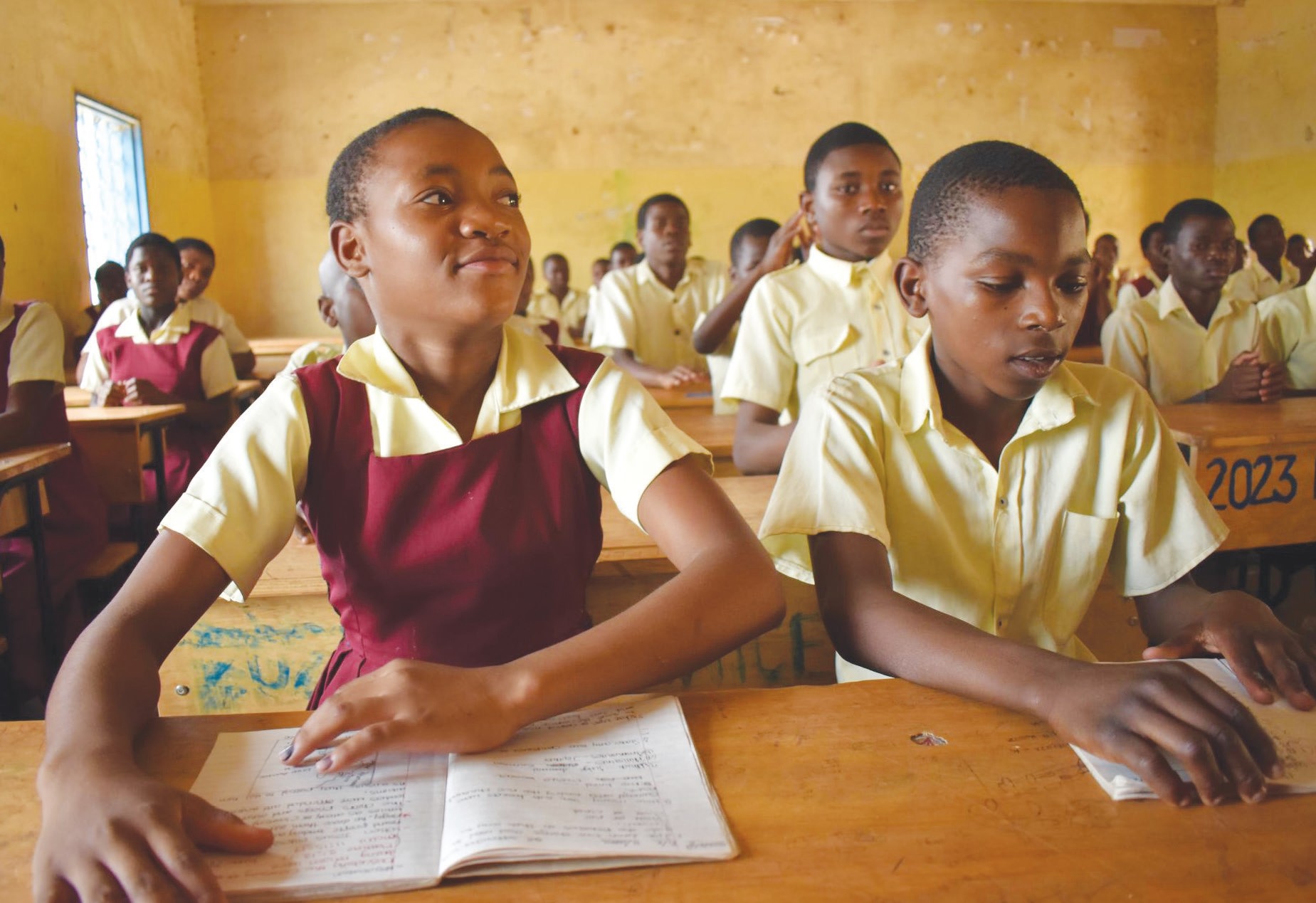Taking a stand for Malawi teachers
 Today, October 5, the world is celebrating World Teachers Day under the theme: Take a stand for teachers. Using examples both from rural and urban areas, Ephraim Nyondo digs deep to explore what it means to be a Malawian teacher.
Today, October 5, the world is celebrating World Teachers Day under the theme: Take a stand for teachers. Using examples both from rural and urban areas, Ephraim Nyondo digs deep to explore what it means to be a Malawian teacher.
Teachers,†says Irina Bokova, Unesco Director General, “ultimately, determine our collective ability to innovate, invent and find solutions for tomorrow.â€
Bokova is right; quality education cannot be achieved without quality and motivated teachers.
That is why she adds: “Nothing will ever replace a good teacher. Nothing is more important than supporting them.â€
But how far is the Malawian teacher supported or motivated?
The story of Grace Silumbu, 34, a Standard Five teacher at Sere Primary School gives a good ground for analysis.
Of course, the school, which is almost 50 kilometres from Karonga Boma in northern Malawi, looks better than the average rural primary school. Unlike Chimbiya Primary School in Chikhwawa, which only has a single block of two classrooms, with the rest of the pupils learning in a shack or under a tree, Sere has four blocks of two classrooms each.
As such—thanks to its proximity to Kayelekera Uranium Mine— all the pupils learn in classrooms and sit on desks.
“The only good thing about the school is that the pupils, as far as the class blocks are concerned, are taught in a better environment,†she says.
But this does not make her, and the rest of the teachers at the school, any better. Her tale is part of a larger story of the plight every teacher share in this country.
“I walk about 1.5 kilometres every day to get to school. With the scorching heat of Karonga, I always start my lessons already tired,†she says.
The school—just like many others across the country—does not have adequate teachers houses.Â
It has 12 teachers, but only six houses for them. In fact, this is better off compared to Chimbiya and Karonga’s Old Mission primary schools. Chimbiya does not have any house for a teacher while Old Mission—a school of almost 1 200 pupils—has only one.
“When it rains,†says Frank Katandika, head teacher at Chimbiya Primary School, “you get drenched as you walk to school. As a result, classes are abandoned.â€
Against a background of being among the least paid civil servants in the country, shortage of teachers’ houses is tragic mostly to teachers in urban areas.
“My salary is less than K50 000. What kind of a decent house befitting a graduate teacher can I manage to rent in this city?†wonders one secondary school teacher in the heart of Blantyre City.
Although he opted for anonymity, the teacher—a graduate of Chancellor College—teaches at Zingwangwa Secondary School.
He stays in Nancholi Township, almost five kilometres from his workplace. This means he spends almost K400 everyday on transport. Then he has to think about his lunch, and all other important human needs that require money. Â
“It is terrible. Nobody cares about us—we are forgotten, dead and buried in misery,†he says.
Tragically, the pain of a teacher doesn’t end with issues of shrinking salaries against the rising cost of living.
“The song of lack of teaching and learning materials appears over sung, of course; but the truth remains inviolate, “adds Silumbu.
Few teachers in the country handle classes within the recommended 1: 50 teacher-pupil ratio.
The introduction of the free primary education, coupled with periodic interventions of Mary’s Meals programme, has increased school enrolment.
Katandika, for instance, teaches Standard Four which has 163 pupils. The lessons are usually held under a shack. Silumbu would consider herself lucky if she knew about Katandika’s situation. She teaches a class of 82.
“You don’t have enough books, or even charts. Yet you have all these pupils. Is this fair?†asks Katandika.
Additionally, the teaching profession, according to Victor Mkandawire, a teacher at Maghemo Secondary School in Karonga, is the only one where you barely have a chance to upgrade your knowledge.
“As knowledge changes, it is imperative that we, as teachers, be the first to regularly attend refresher courses to keep abreast with knowledge. This just doesn’t happen.
“I don’t know how we can be of value to the changing demands of knowledge acquisition. It is just too frustrating,†he says.
So, how can a frustrated teacher help improve the quality of the country’s education? 250 million children worldwide cannot read, write or count well, even those who have spent at least four years in school. This, according to the Global Partnership for Education (GPE), traps them and their communities in poverty, poor health and sometimes violence.
Of course, the GPE partners have made tremendous progress over the past decade in getting children in school and learning, but more needs to be done.
Today, GPE is joining with dozens of other organisations to endorse and help implement the Education First initiative by UN Secretary-General Ban Ki-moon, which will attempt to get all children in school and learning.
“Education is the single best investment countries can make towards building prosperous, healthy and equitable societies,†says Ban.
But this will always be a fool’s dream if a teacher remains this unmotivated and frustrated.
“Teachers play a critical role towards the achievement of the Education for All goals by 2015, nurturing future generations and, therefore, ensuring the sustainable development of societies,†says Limbani Nsapato, an education activist.
Surely, this is a message that need not just be shared as the world, today, celebrates World Teachers Day. In fact, it also resonates well with the words of Bokova that teachers, ultimately, determine our collective ability to innovate, invent, and find solutions for tomorrow.





